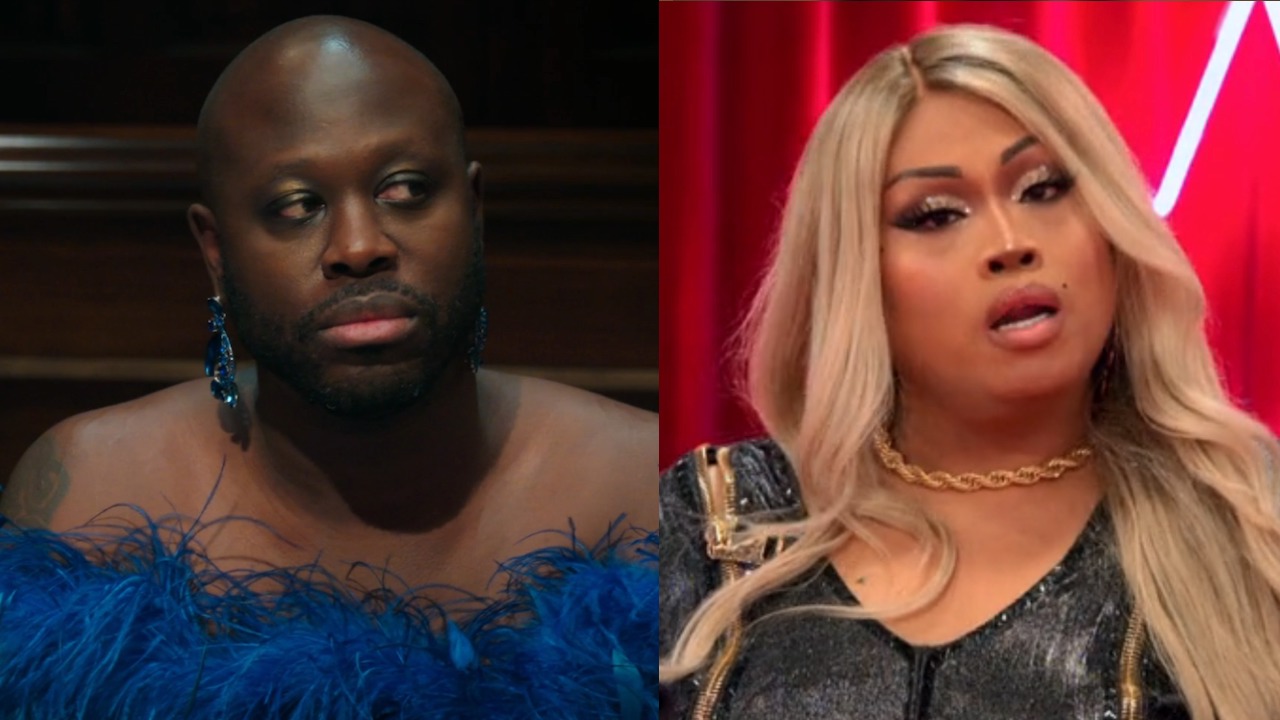Repetition is a cardinal sin of sequels. The tendencies of filmmakers and studio executives leaning in that direction is understandable, as any follow-up story is going to want to capitalize on what people responded to in the previous narrative, but “more of the same” always delivers diminishing returns – and that’s particularly true when it comes to the horror and comedy genres. The more you are exposed to the same kind of scare or joke, the less scary or funny it becomes.
This was very clearly a conflict that plagued the creation of William Brent Bell’s Orphan: First Kill, the 13-years-later prequel to Jaume Collet-Serra’s Orphan.
When the first film was released in 2009, it didn’t quite earn critical acclaim, but it did instantly inspire a fanbase thanks to its particularly wild and ridiculous twist. As such, it’s easy to imagine that the great roadblock in the development of a second movie was figuring out a new big surprise that would parallel the original’s. To the credit of the director and screenwriters David Coggeshall, David Leslie Johnson-McGoldrick, and Alex Mace, the prequel does pack a surprise that is unique and actually provides a fresh perspective on Isabelle Fuhrman's villainous Esther… but the problem is that it uses an hour of “more of the same” to set everything up, and it’s a tough hour to get through in the 100-minute-long feature.
Orphan: First Kill’s title is misleading, as it doesn’t actually center on Esther’s earliest homicide – instead beginning about two years prior to the events of Orphan when she is still known as Leena Klammer and is locked up in the Saarne Instituute, a mental hospital in Estonia. The 31-year-old woman with proportionate dwarfism (making her permanently look like a nine-year-old) executes a shockingly basic escape plan, and once she is free she starts to make plans to head to America. After doing internet research on young girls who vaguely look like her and have been missing for multiple years, Leena targets the Albright family, and she decides to become Esther Albright – concocting a story about being abducted and stolen away to Europe.
As she works to convince those in her new life of her new identity, Esther once again establishes familiar familial dynamics: she alienates her “mother” (Julia Stiles), she weirds out her “brother” (Matthew Finlan), and she starts seducing her “father” (Rossif Sutherland). When suspicions about her con game start to arise, she is forced to make some desperate moves, but in doing so makes some discoveries that wholly change her circumstances.
As a prequel, Orphan: First Kill spends too much time repeating the first movie and answering questions nobody asked.
In the construction of the first two-thirds of Orphan: First Kill, one gets the impression that the filmmakers felt a change in perspective would be enough to render the prequel distinguishable, transforming Esther from antagonist to protagonist, but it proves to be a costly mistake. Rather than fully feeling like a fresh take, the first hour instead is more akin to simply watching Orphan after already knowing the twist… which is surely something that fans of the movie have been doing already in the 13 years since it premiered. There isn’t anything revelatory shown about the way that Esther operates that wasn’t implied in the predecessor feature, and it develops as a lesser version because the new narrative doesn’t have anything to match the mystery element of the original.
Orphan: First Kill also succumbs to the prequel trap of both trying to answer questions that nobody was asking – and adding insult to injury is that these details aren’t particularly handled well or with overwhelming creativity. The escape from the Saarne Instituute is a good example of this, as her “moves” simply consist of seducing and killing a guard to take his key card and manipulating another violent patient with candy to act like her attack dog – but the movie also for some reason feels the need to explain that her proclivity for using blacklight paint comes from being with the patriarch of the Albright family, who is an artist who specializes with them. It feels like misguided fan service.
Orphan: First Kill features some clever developments, but the movie forces you to wait for them.
The weaknesses in the first two acts of Orphan: First Kill are particularly unfortunate because this is a rare horror movie that ends far better than it begins, and the beginning really takes a lot of wind out of its sails. The third act revelation isn’t as big as “that nine-year-old you adopted is actually a 33-year-old homicidal psychotic,” but it’s also not a development that you see coming… and that’s all I’ll say about it in this spoiler-free venue. It’s the kind of twist that under other circumstances might make you want to rewatch the whole movie in search of clues that you may have missed the first time around, but in this case your time is probably better spent watching something else.
You’re best off not rewatching Orphan before checking out Orphan: First Kill.
Reading this review, you may have already gotten the impression that it’s best not to rewatch Orphan before checking our Orphan: First Kill, as having the original narrative in your mind is only going to lessen your appreciation of the follow-up, but another reason to avoid the refresher is the return of Isabelle Fuhrman as Esther. Simply put, the illusion of a 25-year-old actor playing a “nine-year-old” works much better when one doesn’t have the image of the same actor 13 years ago in the same part fresh in one’s mind.
The effort from a filmmaking perspective is an admirable one, as William Brent Bell and his department heads work to create the effect practically with makeup, camera angles, and body doubles instead of with VFX and digital de-aging… but it also can’t be said that the movie is going to “fool” anybody, and there is an onus on the audience to just go with it.
For all that it has going against it technically, narratively, and practically, Orphan: First Kill is far better than one would expect it to be… but that low bar is low enough that it’s still not quite able to call the film a winner. It makes some smart calls, but also a lot of bad ones, and the latter ultimately outweigh the former.

Eric Eisenberg is the Assistant Managing Editor at CinemaBlend. After graduating Boston University and earning a bachelor’s degree in journalism, he took a part-time job as a staff writer for CinemaBlend, and after six months was offered the opportunity to move to Los Angeles and take on a newly created West Coast Editor position. Over a decade later, he's continuing to advance his interests and expertise. In addition to conducting filmmaker interviews and contributing to the news and feature content of the site, Eric also oversees the Movie Reviews section, writes the the weekend box office report (published Sundays), and is the site's resident Stephen King expert. He has two King-related columns.
‘A Weird Kind Of Unintentional But Collective Cruelty.’ Ben Affleck Has A Lot Of Empathy For Britney Spears And What She’s Gone Through In The Press
After News That Taylor Swift Might Be Subpoenaed In It Ends With Us Case, An Insider Made Claims About Where Her Friendship With Blake Lively Stands











